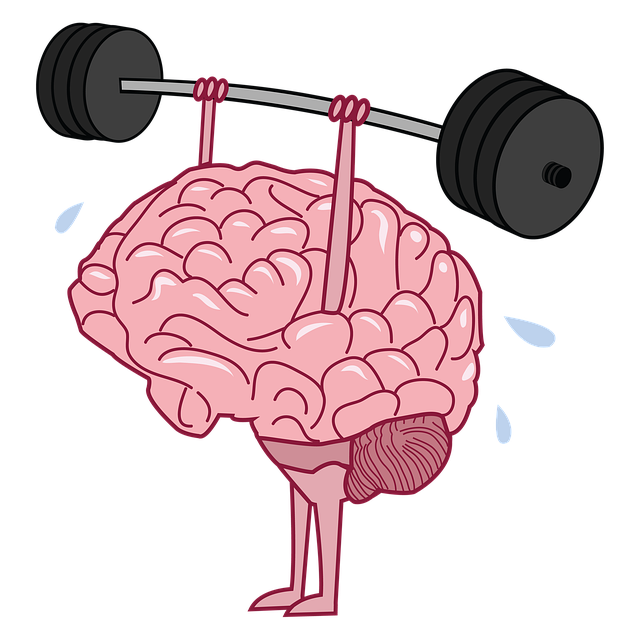Englewood Sexual Dysfunction Therapy (ESDT) promotes positive thinking as a powerful tool for enhancing mental health and overall well-being. By reframing negative thoughts, practicing gratitude, and incorporating mindfulness, individuals can overcome barriers like stress and sexual dysfunction. ESDT's holistic approach integrates these practices into therapy, improving emotional regulation, self-esteem, and coping mechanisms through cognitive reframing, journaling, deep breathing, and advocacy for better mental health policies. This strategy yields tangible improvements in quality of life.
“Unleash the power of positivity and transform your mental health with our comprehensive guide. We explore the profound impact of positive thinking, offering a step-by-step approach to identifying and challenging negative thought patterns. From practical exercises to real-world case studies like the successful Englewood Sexual Dysfunction Therapy, learn how to integrate positivity into daily life. Discover strategies to cultivate a resilient mindset, enhancing overall well-being and potentially revolutionizing your mental health journey.”
- Understanding Positive Thinking and Its Impact on Mental Health
- Identifying Negative Thought Patterns: A Step-by-Step Guide
- Practical Exercises for Cultivating a Positive Mindset
- Integrating Positive Thinking into Everyday Life
- Case Studies: Englewood Sexual Dysfunction Therapy and the Power of Positivity
Understanding Positive Thinking and Its Impact on Mental Health

Positive thinking is a powerful tool that can significantly impact mental health and overall well-being. It involves cultivating optimistic thoughts, focusing on personal strengths, and embracing a mindset of resilience. When individuals engage in positive thinking exercises, they learn to reframe negative thoughts and experiences, leading to improved emotional regulation and reduced stress levels. This simple yet effective practice has been shown to enhance coping mechanisms, boost self-esteem, and promote a sense of inner peace.
At Englewood Sexual Dysfunction Therapy, we recognize the profound impact of positive thinking as a therapeutic approach. By integrating exercises that encourage self-care routine development for better mental health, our trauma support services aim to empower individuals to navigate challenges with optimism and adaptability. Through public awareness campaigns development, we also strive to spread the benefits of positive thinking, making it accessible to a wider audience.
Identifying Negative Thought Patterns: A Step-by-Step Guide

Negative thought patterns are often subtle yet powerful barriers to our well-being and can contribute to conditions like Englewood Sexual Dysfunction Therapy. Identifying these patterns is the first step towards positive change. Start by becoming aware of your self-talk—the internal dialogue that occurs throughout the day. Notice when you have negative thoughts, such as self-criticism or catastrophizing. Keep a journal to track recurring themes and triggers.
Next, analyze these thoughts critically. Ask yourself: Are they based on facts? Do they serve a positive purpose? Often, we catch ourselves falling into unhelpful thought loops. For instance, if you find yourself constantly thinking, “I always mess things up,” challenge this statement by considering specific examples where you succeeded. This step-by-step process of self-awareness and questioning can empower individuals to break free from negative thinking patterns and cultivate a more positive mindset, which is crucial for overall well-being and can even enhance the benefits of Stress Management Workshops Organization and Community Outreach Program Implementation initiatives.
Practical Exercises for Cultivating a Positive Mindset

Cultivating a positive mindset is an accessible and powerful tool for enhancing one’s life. Practical exercises like Englewood Sexual Dysfunction Therapy can significantly contribute to this process. This form of therapy encourages individuals to challenge negative thoughts, replacing them with more constructive and realistic ones. By regularly engaging in mindfulness practices, such as deep breathing or meditation, people can learn to stay present and appreciate the good moments, thereby boosting their emotional well-being promotion techniques.
Additionally, keeping a gratitude journal is an effective self-esteem improvement strategy. Writing down three things one is grateful for each day shifts focus towards the positive aspects of life, fostering a happier mental state. These exercises not only combat anxiety relief but also empower individuals to navigate challenges with a more optimistic outlook.
Integrating Positive Thinking into Everyday Life

Integrating positive thinking into everyday life is a transformative process that can significantly impact overall well-being. At Englewood Sexual Dysfunction Therapy, we emphasize the power of cognitive reframing and gratitude practices to shift one’s perspective. By starting each day with a positive affirmation or journaling about accomplishments, individuals can cultivate an optimistic mindset. This simple routine encourages resilience, improves emotional intelligence, and reduces stress through effective conflict resolution techniques.
Additionally, mindfulness exercises and practicing self-compassion are essential tools for maintaining a positive outlook. Engaging in these activities helps individuals navigate life’s challenges with grace and equanimity, fostering a sense of inner peace. Incorporating such practices into daily routines can lead to tangible improvements in mental health, enhancing one’s overall quality of life.
Case Studies: Englewood Sexual Dysfunction Therapy and the Power of Positivity

Englewood Sexual Dysfunction Therapy (ESDT) is a prime example of how positive thinking exercises can transform lives. This innovative therapy approach focuses on empowering individuals to overcome sexual dysfunction through mental health support and self-awareness exercises. By fostering a positive mindset, ESDT helps patients challenge negative thoughts and beliefs associated with intimacy, thereby improving their overall mental wellness.
The therapy involves a comprehensive Mental Health Policy Analysis and Advocacy strategy, encouraging clients to express their feelings openly while learning to reframe negative experiences. This holistic approach has led to remarkable outcomes, demonstrating the potential of positive thinking in addressing complex issues like sexual dysfunction. By integrating self-awareness exercises into their practice, ESDT ensures that patients not only gain insights into their challenges but also develop effective coping mechanisms for long-lasting mental health and improved quality of life.
Positive thinking exercises, as demonstrated by the successful case of Englewood Sexual Dysfunction Therapy, can significantly enhance mental health. By understanding negative thought patterns and implementing practical strategies, individuals can cultivate a more positive mindset that resonates in their daily lives. This approach not only promotes well-being but also serves as a powerful tool for personal growth and transformation, validating the profound impact of optimism on our overall health.














